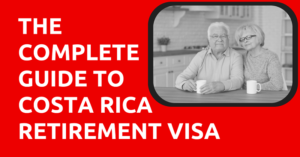Considering where to spend your golden years is no small decision, and “What Are The Pros And Cons Of Retiring In Portugal?” is here to help you navigate this important choice. In this concise yet insightful article, you’ll discover the perks and pitfalls of making Portugal your retirement haven. From the sunny climate and rich cultural heritage to the healthcare system and cost of living, you’ll get a balanced view of what awaits you in this beautiful European destination. Get ready to weigh the joys of leisurely walks along pristine beaches against the realities of adapting to a new lifestyle. Have you ever dreamt of sipping a glass of port wine while gazing at the rolling hills of the Douro Valley, or perhaps wandering through the charming cobblestone streets of Lisbon? If so, you might have considered retiring in Portugal. In recent years, Portugal has become a popular retirement destination for many expatriates, thanks to its favorable climate, rich culture, and reasonable cost of living. However, like any major life decision, retiring in Portugal comes with its own set of pros and cons. Let’s dive into the details so you can make an informed decision.

Check out our recommended retirement gifts!
The Pros of Retiring in Portugal
Rich Cultural Heritage
Portugal is a country steeped in history and culture. From ancient castles to world-class museums, there’s always something new to explore. The cities are filled with architectural wonders that span centuries, and the cultural festivals offer a unique glimpse into the Portuguese way of life.
Favorable Climate
One of the biggest draws is undoubtedly the mild climate. With over 300 sunny days a year, especially in the southern region of the Algarve, it’s a paradise for those who love the sun. Winters are generally mild, making it an attractive option if you’re looking to escape harsher climates.
| Season | Temperature Range |
|---|---|
| Spring | 15-20°C (59-68°F) |
| Summer | 25-35°C (77-95°F) |
| Autumn | 15-25°C (59-77°F) |
| Winter | 10-15°C (50-59°F) |
Cost of Living
Portugal offers a lower cost of living compared to many Western countries. Whether it’s groceries, dining out, or healthcare, you’ll generally find that your money goes further in Portugal.
Accommodation Costs
- Renting: Depending on the location, a one-bedroom apartment in a city center may cost around €700-€1,000 per month, while outside the city center, it could be about €500-€700.
- Buying Property: Property prices are also reasonable, with costs per square meter ranging from €1,000-€3,000.
Quality Healthcare
Portugal has an excellent healthcare system that is both affordable and high-quality. With a mix of public and private healthcare options, you can find world-class medical facilities throughout the country.
Friendly Locals
The Portuguese people are known for their warmth and hospitality. Even if you’re new to the language, you’ll find that many people speak English and are willing to lend a helping hand.
Easy Visa Process
The country offers several visa options for retirees, including the D7 visa, which is designed for individuals with a stable income. The Golden Visa is another option if you plan to invest in property or start a business.
Diverse Sceneries
Whether you prefer beaches, mountains, or vineyards, Portugal has it all. The Algarve offers stunning coastal views, while the north provides lush, green landscapes and wine country.
The Cons of Retiring in Portugal
Bureaucracy
One downside of retiring in Portugal is the bureaucratic process. Navigating paperwork for visas, healthcare, and banking can be cumbersome. The process might seem slow and bureaucratic compared to what you’re used to in your home country.
Language Barrier
While many Portuguese people speak English, especially in touristy areas, the primary language spoken is Portuguese. If you plan to live in a more rural area, you might find it challenging to communicate if you don’t speak the language.
High VAT Rates
Portugal has one of the highest VAT rates in Europe, currently set at 23%. This means that goods and services can sometimes be more expensive than you might expect.
Economic Challenges
Portugal’s economy has its ups and downs. While it has shown signs of recovery in recent years, it’s not without its fiscal challenges. The job market can be tough, and there might be occasional budget cuts that could affect public services like healthcare and transportation.
Property Market Nuances
While the property market generally offers good value, there are nuances to consider. For example, property costs in Lisbon and Porto are relatively high compared to the rest of the country. Additionally, navigating the property market can be complex, requiring assistance from local experts.
Weather Extremes
While the climate is generally mild, summers can be extremely hot, especially in the interior regions. On the flip side, coastal areas can be humid, and the northern regions can be wetter during winter months.
Public Transport Limitations
In rural areas, public transportation options can be limited. If you don’t plan to live in a major city, you might find it inconvenient to get around without a car.
Check out our recommended retirement gifts!
Practical Considerations for Retiring in Portugal
Financial Planning
Before making the move, it’s crucial to have a solid financial plan. Consider factors like exchange rates, tax implications, and the cost of living. Consulting with a financial advisor who is familiar with international laws can be beneficial.
Financial Requirements for D7 Visa
- Minimum Income: Proof of minimum income to ensure a stable financial situation. Currently, the minimum income requirement is around €12,000 per year for an individual.
Healthcare Options
Ensure you understand the healthcare options available to you. Residents can access the public healthcare system, but having private health insurance might offer more comprehensive coverage.
Real Estate Considerations
Do thorough research before deciding on renting or buying property. The real estate market varies significantly from region to region. Consulting with a real estate agent who specializes in expatriate clients can be particularly helpful.
Community and Lifestyle
Think about the kind of lifestyle you want. Whether you prefer urban living in Lisbon, a countryside retreat, or coastal paradise in the Algarve, Portugal offers diverse living environments. Visiting potential areas before making a final decision can give you a better sense of what feels right for you.
Legal and Taxation Matters
Consult with legal experts to understand the implications of becoming a resident. Portugal offers favorable tax schemes for retirees, but it’s essential to comprehend the specifics. For instance, the Non-Habitual Residency (NHR) scheme offers certain tax advantages for the first ten years of residence.
| Tax Category | Rate |
|---|---|
| Income Tax | Up to 48% |
| Capital Gains Tax | 28% |
| VAT | 23% |
Personal Stories
John’s Experience
John, an American expatriate, decided to retire in Portugal after falling in love with the country during a vacation. While he praises the exceptional quality of life, he found the initial bureaucratic hurdles challenging. “The paperwork can be overwhelming,” he says, “but the friendly locals and beautiful scenery make it worthwhile.”
Sarah’s Story
Sarah, a British retiree, moved to the Algarve and enjoys the mild climate and stunning beaches. However, she found the language barrier a bit difficult to navigate. “Learning Portuguese has been a bit tough, but it’s rewarding. The locals appreciate the effort,” she notes.
David’s Adventure
David, from Canada, bought a property in Porto and loves the vibrant cultural scene. He mentions that the cost of living is much more manageable than in Canada. “Eating out, groceries, and entertainment cost significantly less here,” he shares.

Tips for a Smooth Transition
Learn the Language
Even a basic understanding of Portuguese can go a long way. There are plenty of online courses and local classes that can make the learning process easier.
Engage with the Community
Joining local groups and participating in events can help you integrate faster and make new friends.
Plan Visits Before Settling
Visit different regions and spend enough time to get a feel for each area. This can help you decide which location suits you best.
Financial Planning
Ensure you have a stable income and understand the cost of living. It’s also wise to have an emergency fund.
Consult with Experts
Engage with legal, financial, and real estate experts who can guide you through the process and help you avoid common pitfalls.
Final Thoughts
Retiring in Portugal can be a dream come true if you plan carefully and understand both the advantages and the challenges. With its rich cultural heritage, favorable climate, and reasonable cost of living, Portugal offers a lot to those looking to enjoy their golden years. However, navigating the bureaucracy, language barriers, and economic nuances requires careful consideration. By weighing the pros and cons, consulting with experts, and engaging with the community, you can make a well-informed decision that will lead to a fulfilling and enriching retirement experience.
Living in a foreign country is a significant step, and it’s essential to be prepared. Whether you choose the bustling streets of Lisbon, the serene beaches of the Algarve, or the verdant landscapes of the North, Portugal offers something for everyone. Take your time, do your research, and make the most out of this exciting chapter in your life. Cheers to your future adventures in Portugal!



